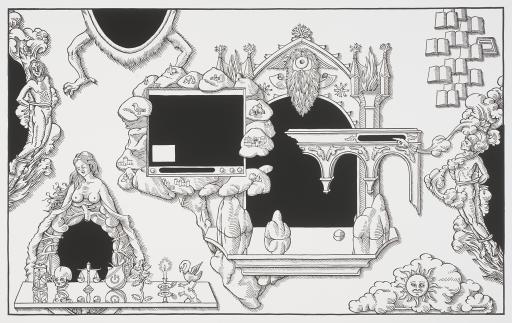Panagea, Saul Chernick
Artwork Overview
Saul Chernick, artist
born 1975
Panagea,
2011
Where object was made: United States
Material/technique: relief print; screen print; Rives BFK™ paper
Dimensions:
Plate Mark/Block Dimensions (Height x Width): 367 x 595 mm
Plate Mark/Block Dimensions (Height x Width): 14 7/16 x 23 7/16 in
Sheet/Paper Dimensions (Height x Width): 509 x 722 mm
Sheet/Paper Dimensions (Height x Width): 20 1/16 x 28 7/16 in
Mat Dimensions (Height x Width): 24 x 32 in
Plate Mark/Block Dimensions (Height x Width): 367 x 595 mm
Plate Mark/Block Dimensions (Height x Width): 14 7/16 x 23 7/16 in
Sheet/Paper Dimensions (Height x Width): 509 x 722 mm
Sheet/Paper Dimensions (Height x Width): 20 1/16 x 28 7/16 in
Mat Dimensions (Height x Width): 24 x 32 in
Credit line: Museum purchase: Elmer F. Pierson Fund
Accession number: 2011.0074
Not on display
If you wish to reproduce this image, please submit an image request


